
Culture
22:40, 16-Jun-2018
Eid al-Fitr celebrations, Beijing Style
By Zhuang Yuying
01:27
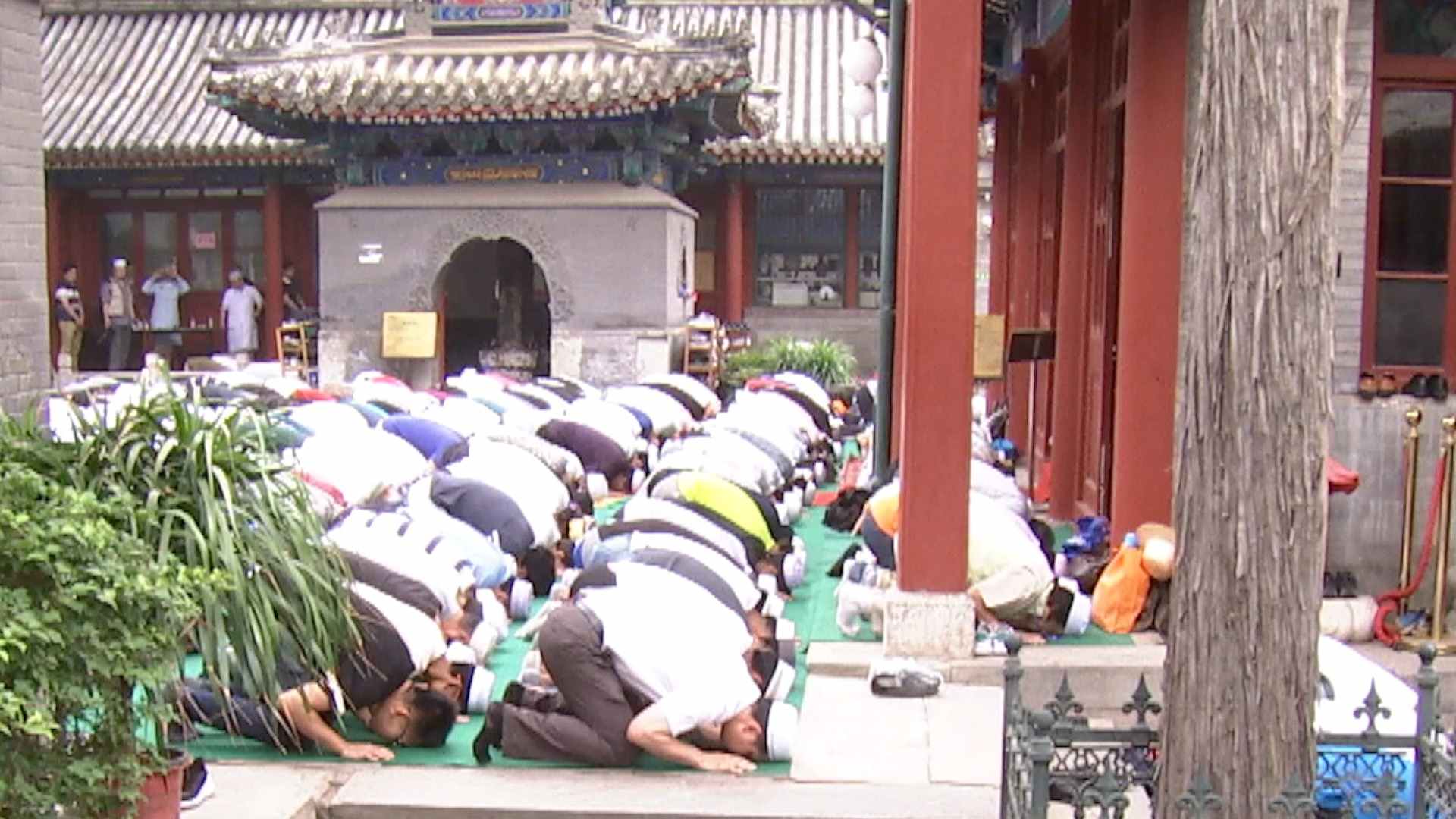
“Street of the Ox”
The oldest and largest mosque in Beijing, the Niujie Mosque, stands on Niujie Street. The street’s name literally means “street of the ox”. Most people think it got the name because of the Muslims living nearby. They mainly eat beef and mutton — which raises the question: Why street of the ox, not ram?
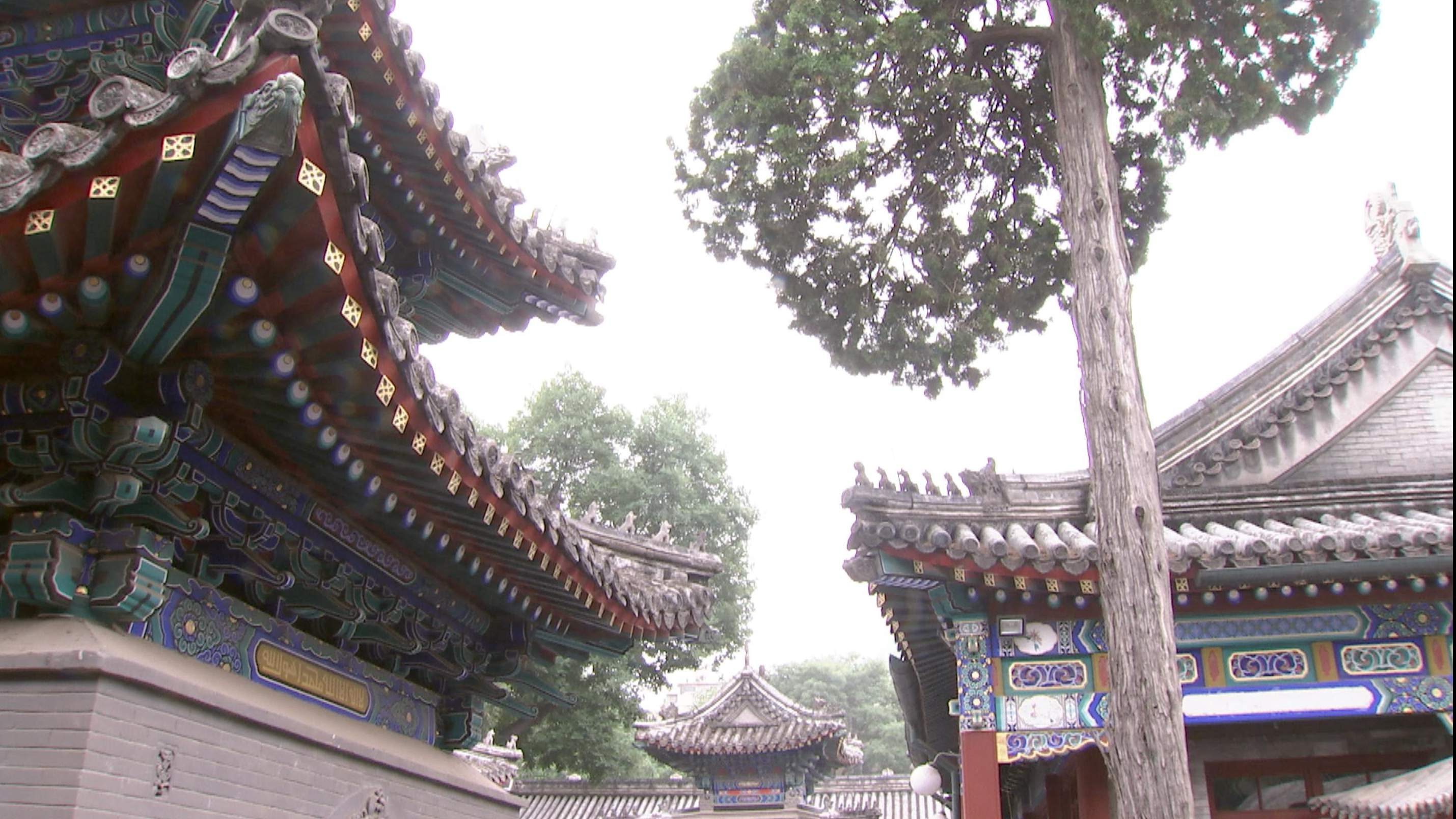
Niujie Mosque is a sample of the combination of Chinese and Arabic architectural style. /CGTN Photo
Niujie Mosque is a sample of the combination of Chinese and Arabic architectural style. /CGTN Photo
In fact, in the old times, people who lived along Niujie loved to plant pomegranate trees, which are called “Liu” in Chinese. As time goes by, the way the street was pronounced changed from “Liu” to “Niu”.
Halal food destination
With no doubt, Niujie is Beijing’s best authenticity halal food destination. The street becomes extremely busy and popular today for the annual Halal Food Festival, the eleventh of which takes place today.
“I live just around the corner. I come for the Food Festival every year, and sometimes with friends and neighbors. It’s always a popular day.” Shi Changling, a Beijing resident who has lived nearby for decades said.
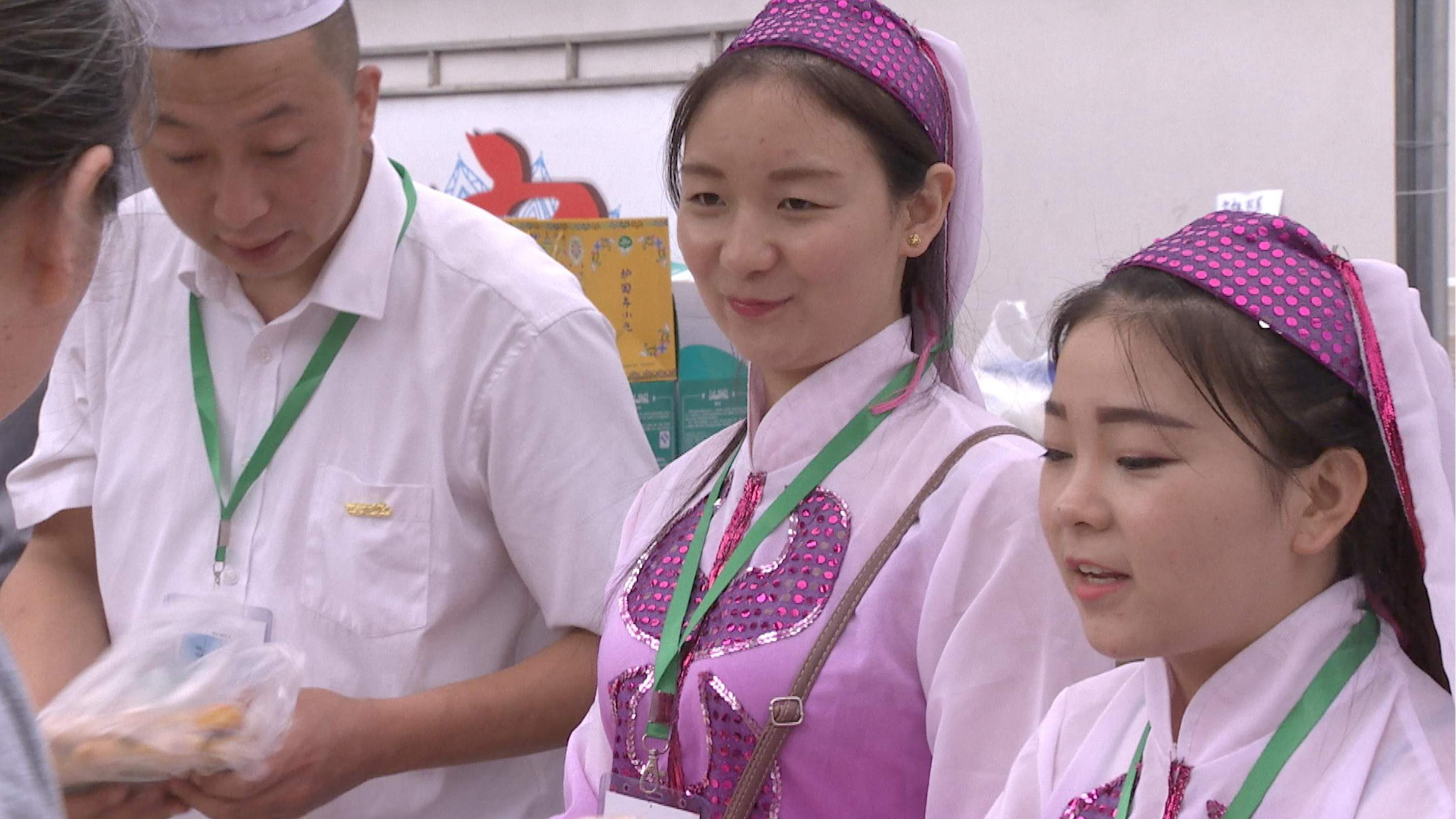
Salesgirls selling traditional snacks. /CGTN Photo
Salesgirls selling traditional snacks. /CGTN Photo
Shi is not a Muslim, and many visitors and tourists, just like her, are not Muslims either. Some of them come to taste the delicious snacks, and some to experience the Islamic festival and ceremony. Niujie Mosque is open to all without restriction.
“We have been selling snacks here on the Eid al-Fitr festival for more than 30 years. It’s even longer than the history of this food festival. But now we have this event. The atmosphere is great, with lots of tourists from all over Beijing.” Yang Qiliang, general manager of Niangaoyang Rice Cake Company, said. His company occupied a booth in the Halal Food Festival.
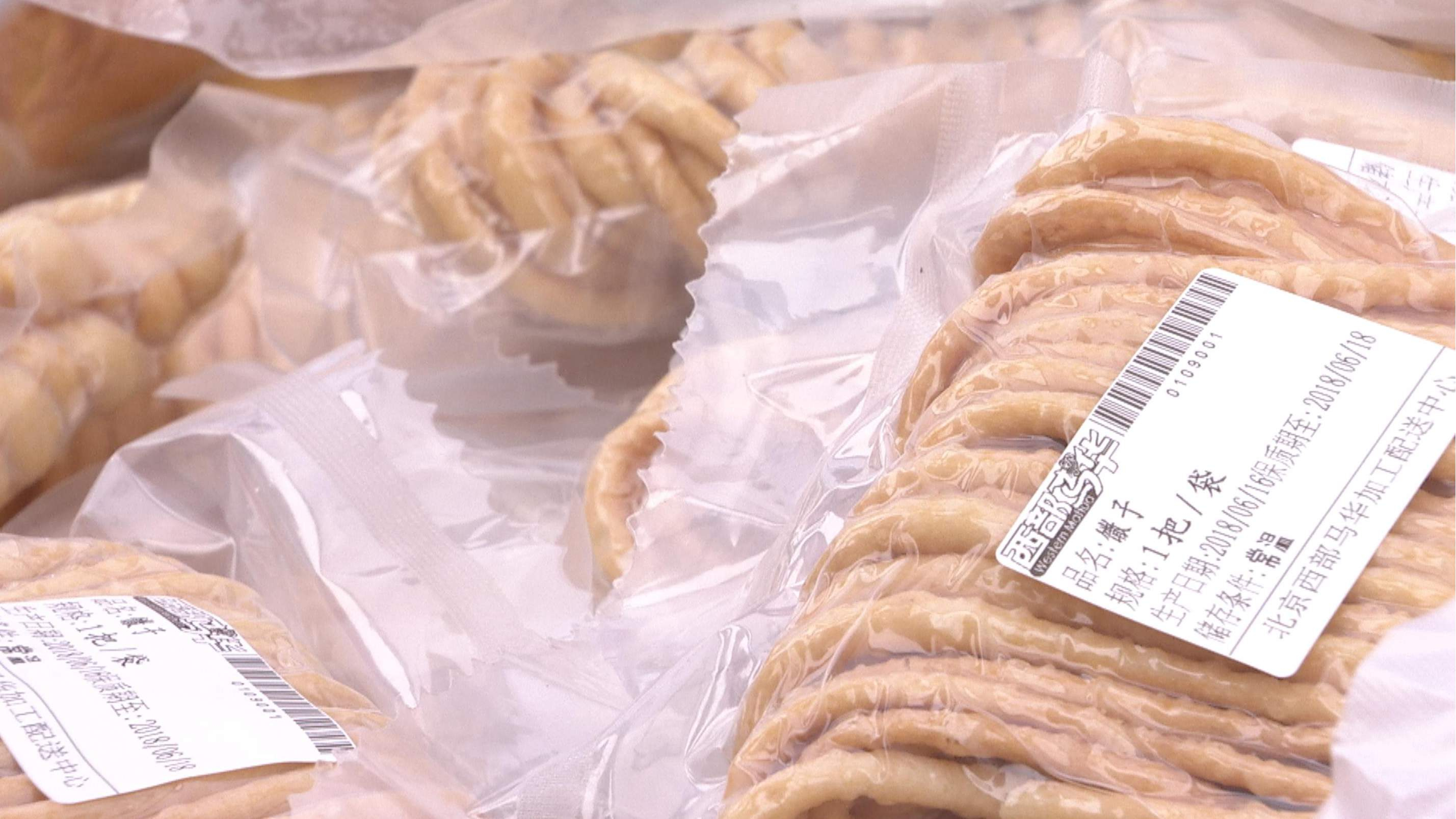
Oil-fried Sanzi is a traditional Halal snack for Chinese Muslims. /CGTN Photo
Oil-fried Sanzi is a traditional Halal snack for Chinese Muslims. /CGTN Photo
Sprit of sharing, spirit of love
Among the various worshipers, there are many foreign faces. “I’m a Malaysian.” one girl said. “In Malaysia, Eid al-Fitr is a day when we as a family get together and celebrate together. So it’s a family day too.”
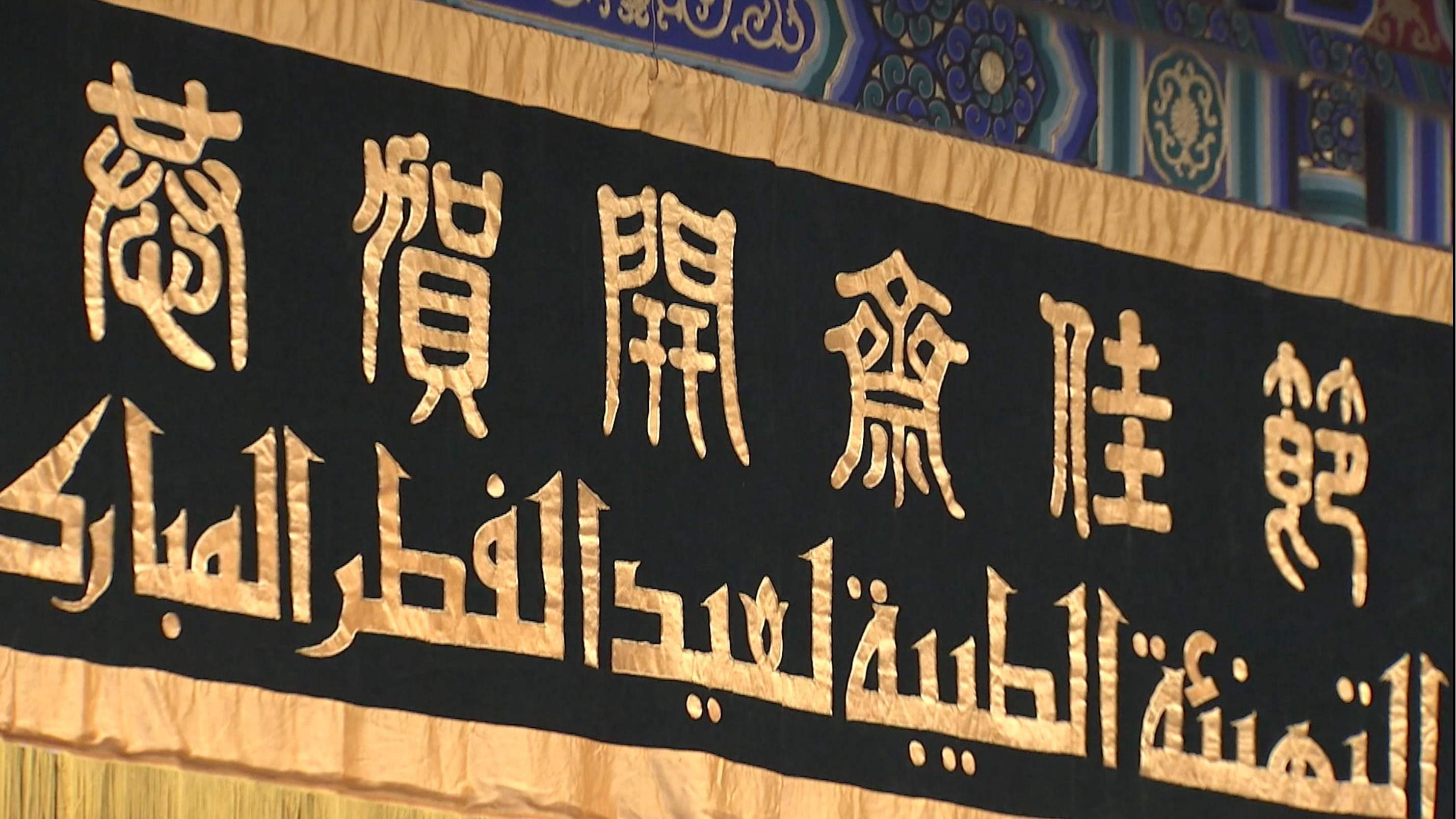
Banner with “celebrating auspicious festival of Eid al-Fitr” written in both Chinese and Arabic. /CGTN Photo
Banner with “celebrating auspicious festival of Eid al-Fitr” written in both Chinese and Arabic. /CGTN Photo
“Eid al-Fitr is an auspicious day for Muslims. It’s a festival for gratitude and learning,” said Yang Guanjun, an Akhoond of Niujie Mosque.
While the fast during the whole month of Ramadan reminds devotees to have empathy for the poor, the feast of Eid al-Fitr is about the spirit of sharing. Love and friendship, just like food, can be shared by all.

SITEMAP
Copyright © 2018 CGTN. Beijing ICP prepared NO.16065310-3
Copyright © 2018 CGTN. Beijing ICP prepared NO.16065310-3